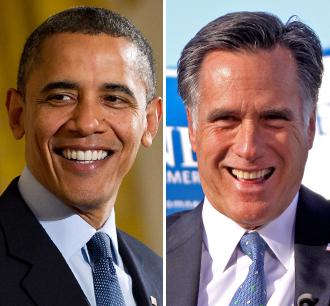President Barack Obama sent a two-page letter over the weekend to six child advocacy organizations to explain his plan to combat poverty among children in his second term. Nearly one in five children in the United States lived below the poverty line last year, according to the U.S. Census Bureau.
 President Obama’s letter was in response to three questions sent to him and Republican presidential candidate Mitt Romney in early September by advocates asking about the candidates’ plans to address comprehensive health care coverage, education and food security for children; steps each would take to fight child poverty in the first 100 days of their administration; and the candidates’ long-term visions for a solution.
President Obama’s letter was in response to three questions sent to him and Republican presidential candidate Mitt Romney in early September by advocates asking about the candidates’ plans to address comprehensive health care coverage, education and food security for children; steps each would take to fight child poverty in the first 100 days of their administration; and the candidates’ long-term visions for a solution.
The Romney campaign declined to respond to the questions.
In his letter, the President pointed to his health care reforms, saying he had expanded the Children’s Health Insurance Program in 2009 and enabled 14 million children to get improved coverage for preventative care through the Affordable Care Act. He also referred to the Recovery Act, saying it supported an expansion of food stamps, Medicaid and various tax credits that kept families from sliding into poverty.
Long-term solutions to keep children out of poverty involved reforming the education system, reducing crime and improving housing and transportation in troubled areas, President Obama said. “We need to transform high-poverty neighborhoods with distressed public housing and crumbling schools into communities that are sustainable for the growth of our children,” he wrote.
The issue of childhood poverty has been essentially invisible in the presidential campaign so far, many advocates say. It has not come up in either of the two presidential debates conducted so far, or in the sole vice-presidential debate. And neither of the two major-party candidates has made it a part of his stump speech.
“This is really quite mind-boggling to all of us in the child advocacy community that this is not a front and center issue,” the co-founder of one of the six organizations, Dr. Irwin Redlener of the Children’s Health Fund, said in an interview on MSNBC on Tuesday.
Of the nine states considered battlegrounds for both candidates, three – Florida, Ohio and North Carolina – had more children in poverty last year than the national average of 22 percent, his interviewer, Chris Jansing, pointed out.
“Obviously, we’re going to keep pushing on this even well beyond the election, but it was heartening to see at least one of the candidates responding as the President did,” Dr. Redlener said.
Both candidates missed the original Sept. 14 deadline for their responses to the questions. President Obama sent his reply Oct. 13 by email.
The Romney campaign decided not to respond to the questions at all, despite several emails back and forth, Redlener said.
“It’s hard to know what their motivation was. They did not say,” Redlener said. “There was a lot of email traffic but basically they came to the conclusion that they simply would not respond, even though this is obviously a really, really big issue that should be confronted in the election cycle.”
Whether it’s talked about or not, the issue of poverty among kids in the United States is not going away, Redlener said.
“At the end of the day, whoever wins the presidency of the United States is going to have to pay attention to the needs of children. And it’s not just a matter of compassion either,” he continued. “This has to do with our long-term economic viability and well-being.”
























